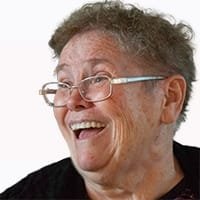
Harry Woodard’s brick mill, formerly located off North Main Street.

Jeanne Newby
Like a bolt of lightening out of a clear blue sky, the people of Webb City were startled to learn of the arrest of Harry and Frankie Woodard on Saturday, Jan. 11, 1880.
At 11 a.m., Sheriff McBride went to the home of William Toms to arrest the Woodards for the murder of Toms’ wife. The charges were filed after Mrs. Toms’ son, Charles James Thurnbull, reported that he had proof that the Woodards had plotted to kill his mother.
Mrs. Toms had died the previous week of what appeared to be an overdose of laudanum (a mixture of opium and alcohol). It was suggested that it might have been suicide.
After the complaint filed by Thurnbull, the matter was open for investigation. Thurnbull claimed that he had overheard a conversation between the Woodards, leading him to believe they had killed his mother and that his life was in danger. He said Mrs. Toms had forebodings of upcoming evil, and she had told him where she had hidden some money. Thurnbull claimed that the Woodards gave Mrs. Toms some poisoned wine the day she became ill.
An update on the family shows that William Toms was an Englishman by birth. Business took him to Australia, where he supposedly met Mrs. Toms. They were married in England in 1867.
Thurnbull said he had never met William Toms before the wedding. He went on to say that he never remembered seeing his mother before the wedding either. He remembered a lady in a carriage coming by and throwing money out of the carriage for him. He never saw the lady’s face. But, after the wedding, his mother came to get him, and she told him she was the lady in the carriage. Now that she had married William Toms, she came to get her son.
The Toms and Thurnbull came to America and had some business adventures in Kansas before settling in Webb City. Toms had lots of energy but didn’t seem too successful with his business adventures. He opened a lead furnace on Ben’s Branch between Webb City and Carterville in 1876, just as the mining industry was growing in Webb City.
Harry Woodard was the supervisor of the crusher for Toms. Harry and his wife Frankie lived in the same house with Mr. & Mrs. Toms. Thurnbull insinuated that Toms was having an affair with Frankie Woodard.
Thurnbull’s testimony revealed many life secrets and aroused lots of curiosity. Folks began to question if Mrs. Toms had been murdered or if she died at her own hand.
The attorney for the state ordered a committee of physicians to conduct an autopsy. Dr. Brooks, Dr. Hill and Dr. Matthews were appointed. The body was exhumed, and the autopsy performed. A report was not given to the public right away. The trial continued.
Thurnbull continued to tell wild and insinuating stories that made the fair ladies blush as they discussed the trial at their social gatherings. Would they ever know the truth for sure? Or did Mrs. Toms take the secret with her to her grave? How would the autopsy prove who gave Mrs. Toms the laudanum?
Dr. T.C. Miller was the attending physician in the case. He had treated Mrs. Toms for an overdose of laudanum. He had given her Emetric to induce vomiting. A second dose was given later, and Mrs. Toms seemed to be doing better. She was tired and asked to be left alone while she rested. Upon returning to her room, it was discovered that she had taken more laudanum and they were unable to bring her out of her drowsy state. Mrs. Luther Wilcox, a friend, assisted Dr. Miller in caring for Mrs. Toms.
Did Mrs. Toms end her own life? Was there reason for her to do that? Was there an affair going on that she couldn’t live with? Or was there someone who wanted her out of the way? Or could Thurnbull have carried a grudge against his mother for the years she seemed to have abandoned him? Could he have figured out a way to get Toms and the Woodards out of the picture so he could have all the inheritance?
The trial continued until Jan. 22, 1880. At 8 p.m. Justice Brown terminated the trial and discharged the Woodards. We will never know what really happened to Mrs. Toms. But the citizens of Webb City had plenty to talk about in their parlors during the month of January and probably many months to come in 1880.
As for William Toms, his troubles weren’t over yet. His lead furnace was destroyed by fire that same year. If Toms was not responsible for the death of his wife, he deserves some sympathy for having a very bad year.
Harry Woodard went on the start a brick kiln in Webb City, on the north end of town close to Independent Gravel Co.
